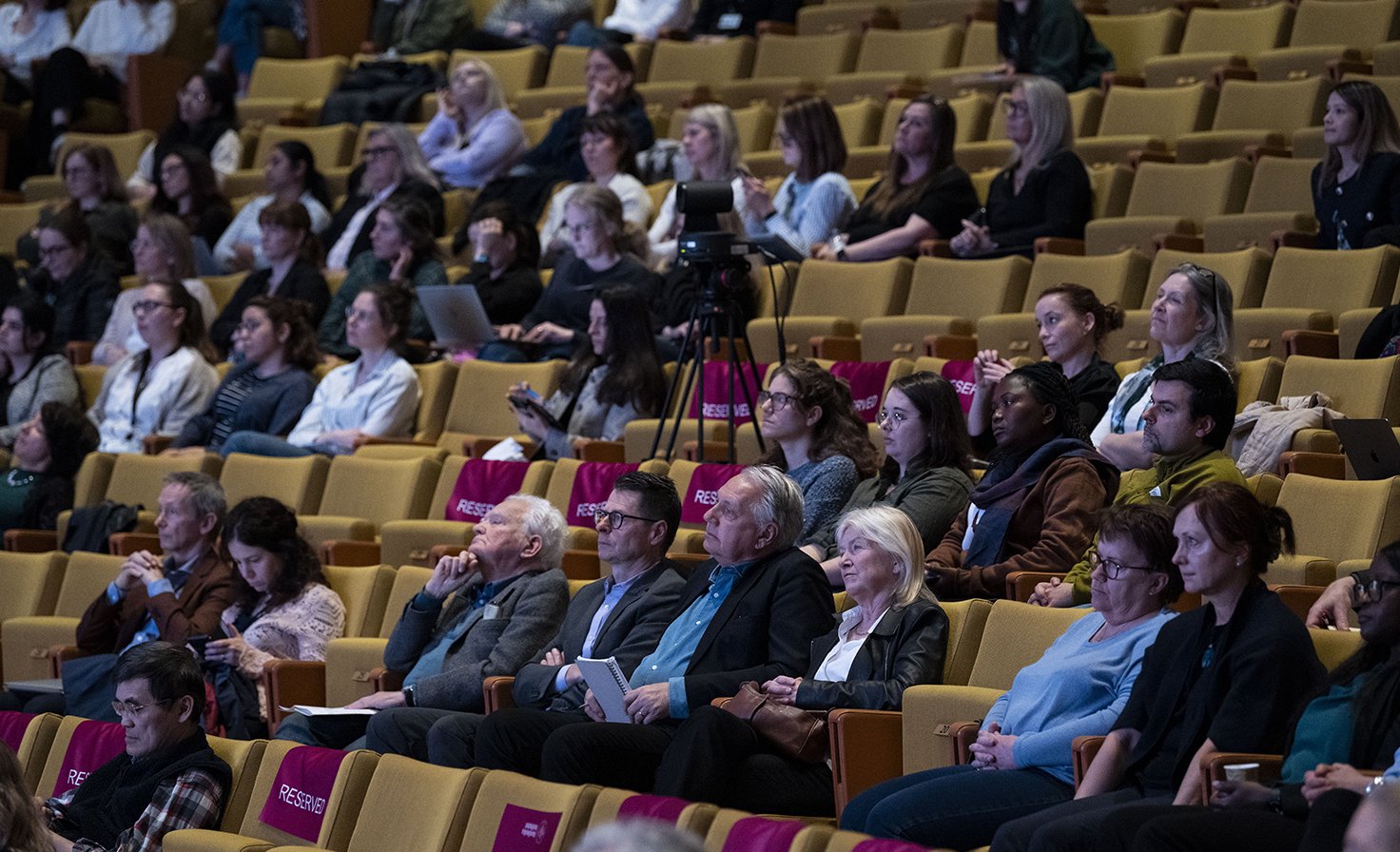A patient-centred Karolinska CCC Day
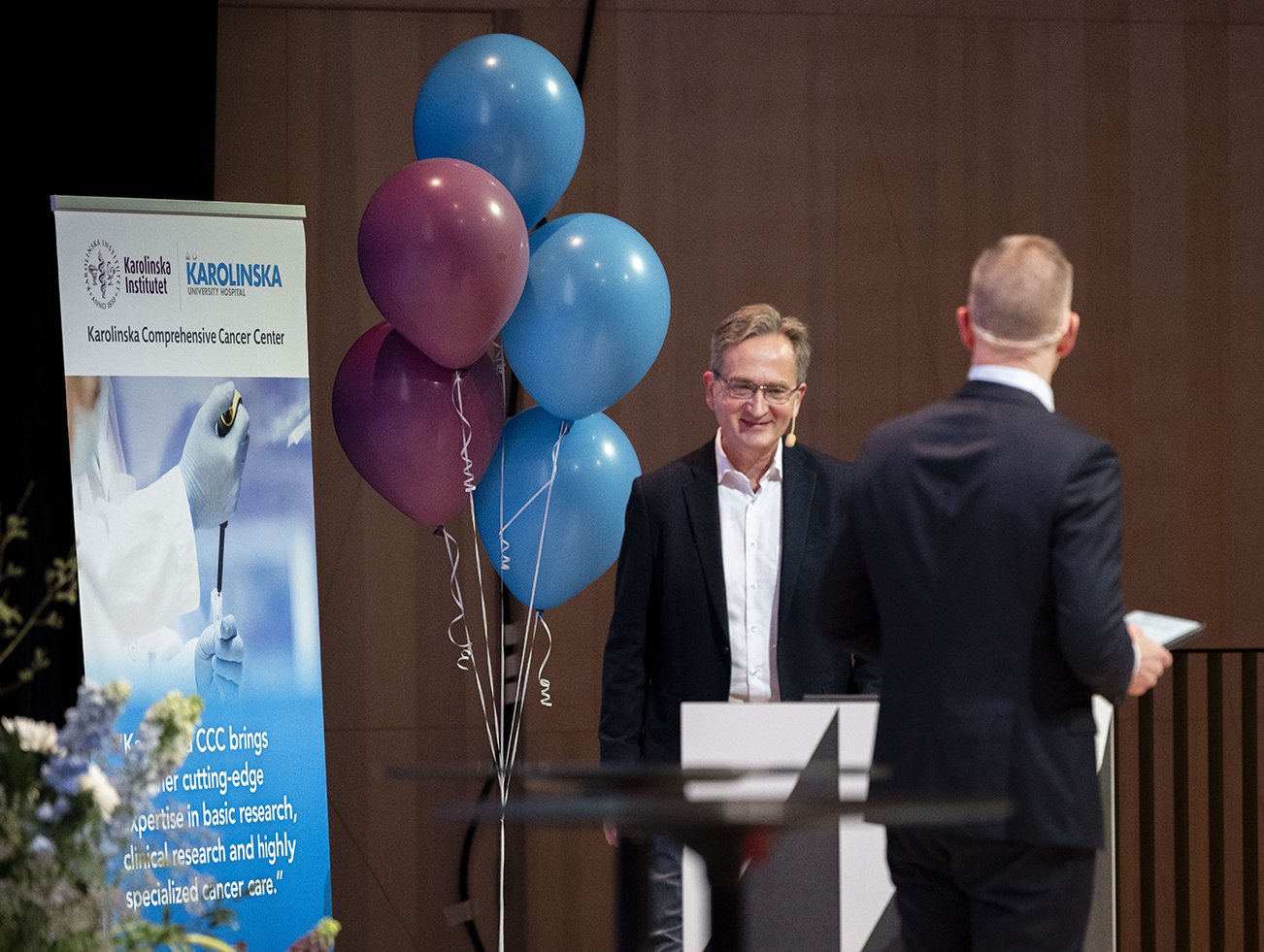
The 2024 Karolinska Comprehensive Cancer Centre Day draw a large number of experts in the field of cancer research from KI and Karolinska University Hospital. The theme this year was prevention, with particular attention directed to scientific advances and remaining challenges, as well as to how involving patients in prevention enhances quality of care.
Karolinska Comprehensive Cancer Centre (Karolinska CCC) is a joint initiative between KI and Karolinska University Hospital on advanced cancer care, research and education.
The annual Karolinska CCC Day provides a valuable opportunity for experts in the field to present advances in research and their significance to the field of life science and precision medicine.
The conference is arranged by Karolinska CCC with KI, Karolinska University Hospital and Region Stockholm as key actors.
This year’s Karolinska CCC Day, the third in succession, was introduced by Patrik Rossi, chair of the Karolinska CCC steering group and acting CEO of Karolinska University Hospital.
Patient networks in the KCCC
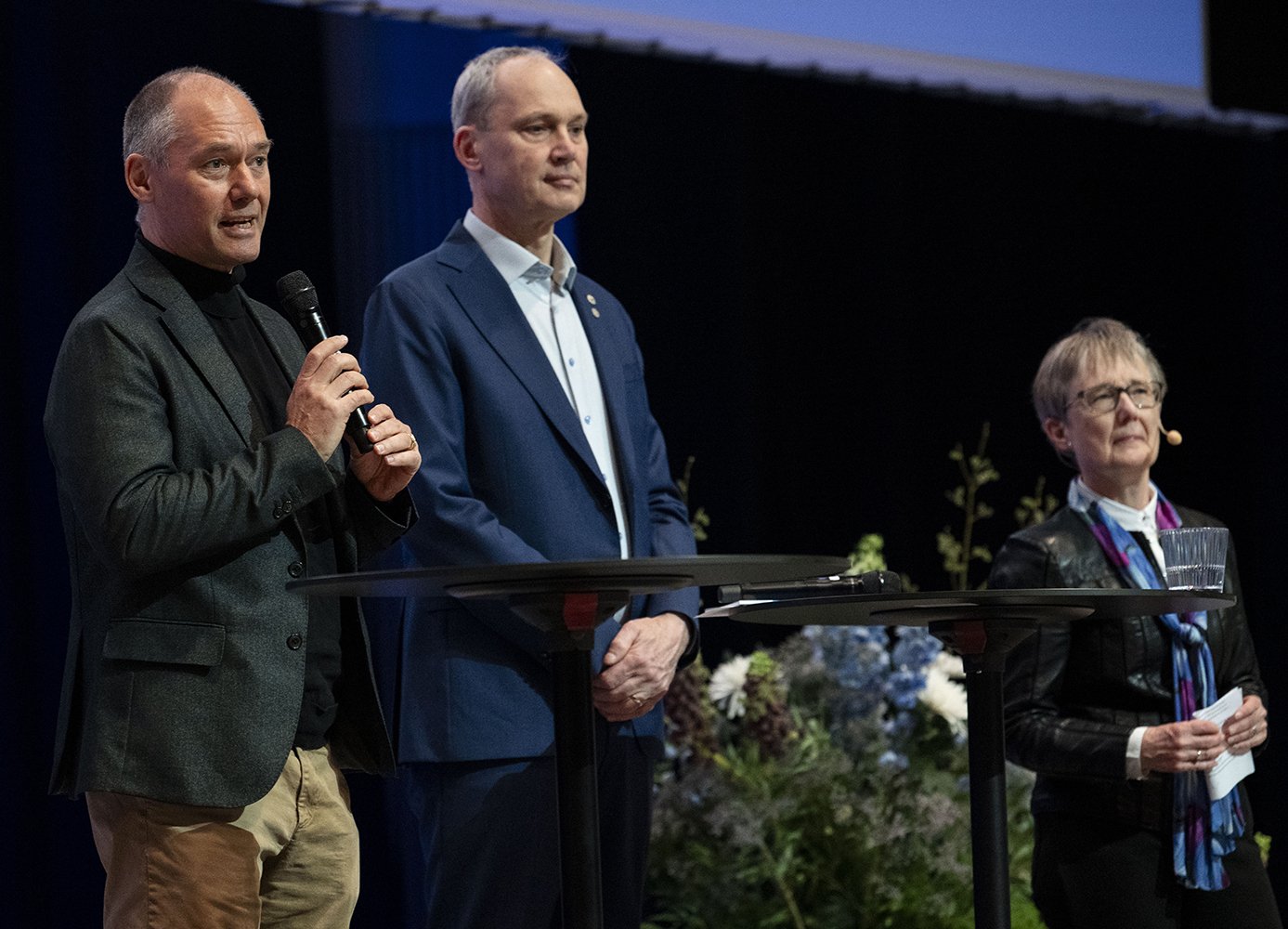
On presenting this year’s theme, Patrik Rossi took the opportunity to highlight the progress made by Karolinska CCC over its first four years and the value of having patient representatives in the management group.
“Everyone has to be involved for cancer treatment and research to develop,” he said.
Anita Wanngren, patient representative and member of the Karolinska CCC steering group, talked about the establishment of a patient network.
“The point of a Karolinska CCC network is to provide a platform for asking questions, discussing improvement proposals and getting feedback, all in order to raise the quality of the care patients receive,” she said.
Two key EU initiatives
To place the theme of prevention in a wider perspective, Eva Jolly, operations manager for Karolinska CCC, presented the EU’s Beating Cancer Plan and Cancer Mission.
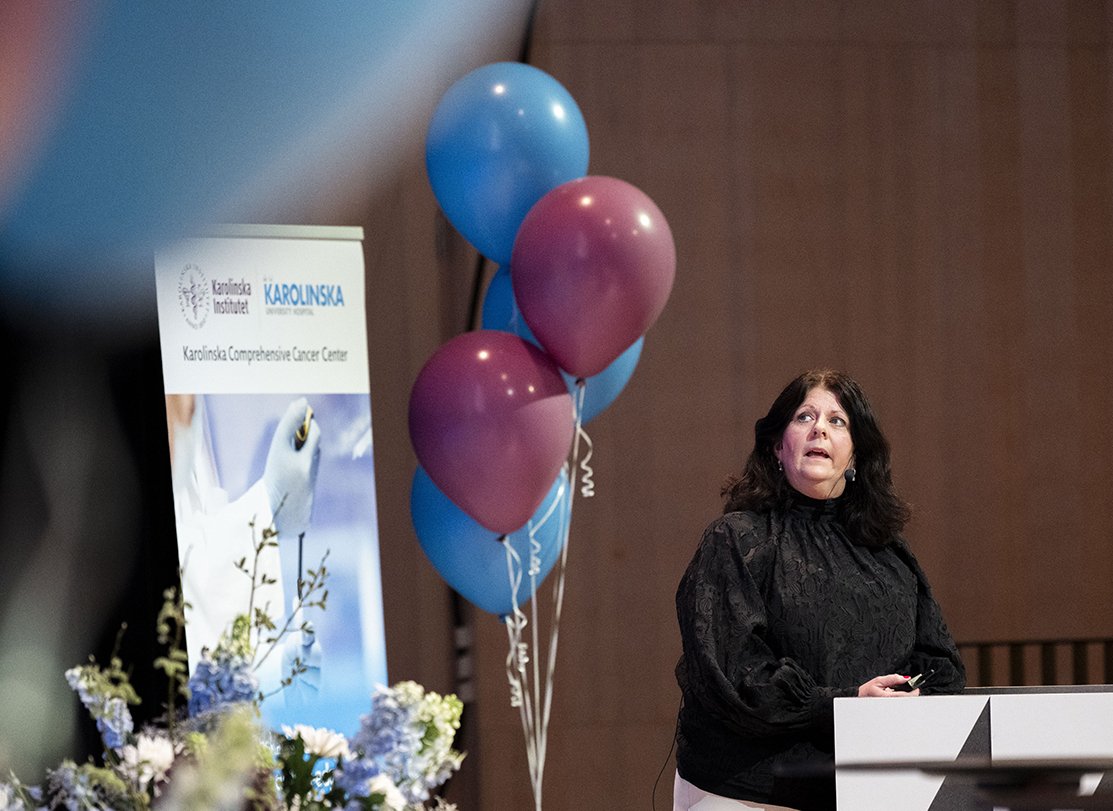
“The focus here and in Europe is on combating cancer, and collaboration and development enable us to be a part of this,” says Eva Jolly.
The aim of the European Beating Cancer Plan is to reduce the burden of cancer through prevention, improved early detection and diagnosis, and better therapeutic methods and patient care.
The Cancer Mission promotes cancer research, innovation and technology. The common objective of the two initiatives is to ensure that prevention, curative treatments and greater life expectancy will improve the lives of three million people by 2030.
Prevention is becoming increasingly important
Joakim Dillner, professor at KI’s Department of Clinical Science, Intervention and Technology, and head of unit at Karolinska University Hospital’s Centre for Cervical Cancer Prevention, made the point that cancer imposes a huge economic burden on society, noting that the number of cases is expected to double by the year 2070.
“Hospitals won’t be able to keep up, so we have to concentrate on prevention,” said Professor Dillner. “And many cancers are preventable, we’ve seen that.”
One clear example of this is screening and vaccination against HPV, a virus that can cause cervical cancer. Sweden currently has the world’s highest HPV vaccine uptake, and every day the programme receives an additional 250 women.
“If we continue at this pace, it might not be long before cervical cancer is eradicated,” he said. “Prevention is the key to beating cancer, and the research is giving us new, more effective strategies for preventing carcinogenic viruses.”
The preventative role of exercise
Yvonne Wengström, nurse and professor at KI’s Department of Neurobiology, Care Sciences and Society and her departmental colleague postdoc researcher Cecilia Haddad Ringborg spoke about the preventative role of exercise.
One of their main points was that chemotherapy degrades the body’s oxygen uptake capacity, muscle strength and bones, and often leads to weight-gain and fatigue, all of which can be largely offset by physical activity.
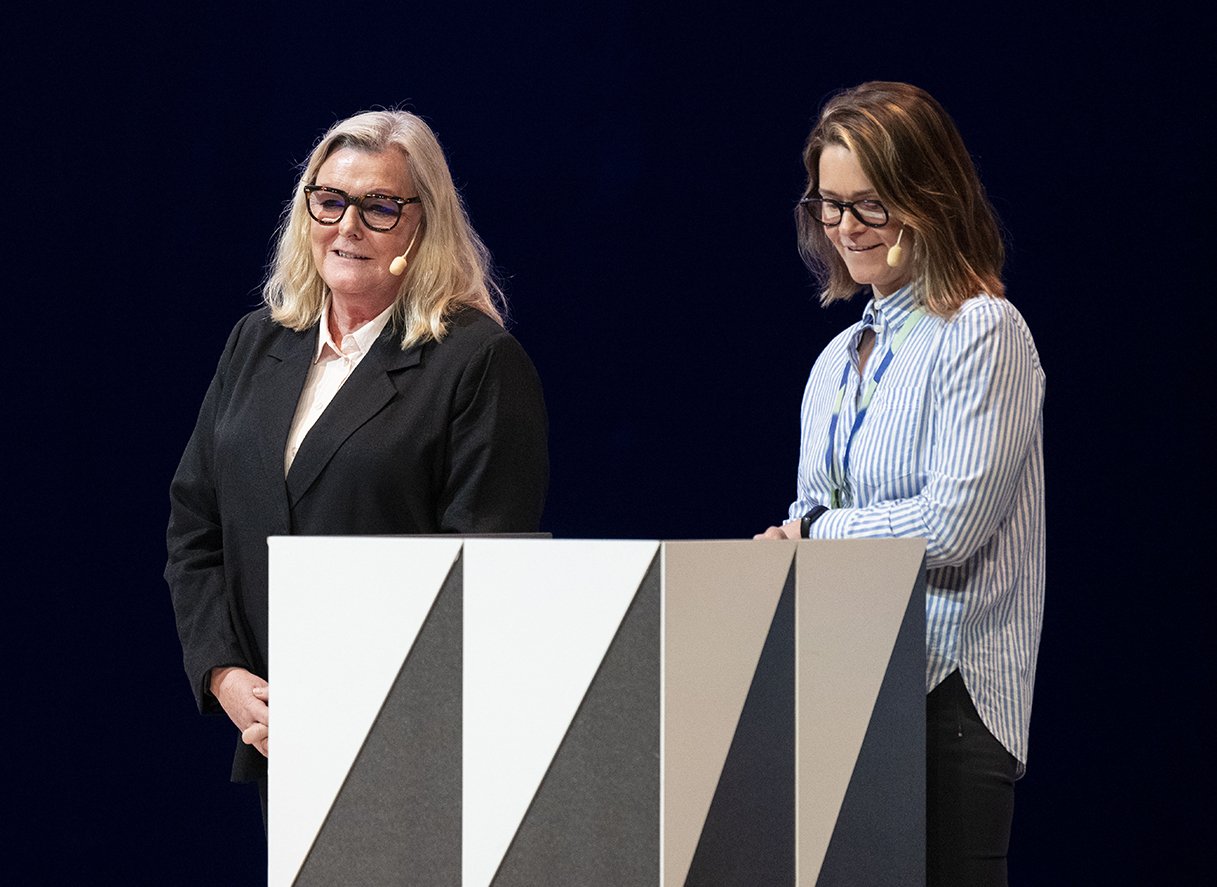
“The benefits of training apply to everyone, and the more active you are, the less likely you are to develop cancer,” said Dr Haddad Ringborg.
Studies have also shown that physical activity can improve the treatment response and reduce the risk of relapse.
“If patients knew that physical activity can improve their chances of survival, they’d probably want to get help with it even before their treatment regimen ends,” said Professor Wengström, who is a strong advocate of the Physical Activity on Prescription programme.
Tailored therapeutic vaccine
Gunilla Karlsson Hedestam, professor at KI’s Department of Microbiology, Tumour and Cell Biology, presented different ways in which the immune system can be used in the development of tailored cancer treatments.
Besides stressing the importance of developing a vaccine against more carcinogenic viruses, she also talked about existing therapeutic methods that combat cancer by stimulating the immune system.
These include a type of cell therapy involving the modification of a patient’s T cells so that they target tumours, and checkpoint therapy, an immunotherapy in which certain T cells are blocked to stop them protecting cancer cells.
Concluding her talk, Professor Karlsson Hedestam touched on the growing field of tailored therapeutic vaccines.
Two hurdles that researchers face in the development of vaccines are that each tumour is unique, and that tumours often inhibit the immune system. The solution to both these challenges, according to Professor Karlsson Hedestam, is tailored vaccines:
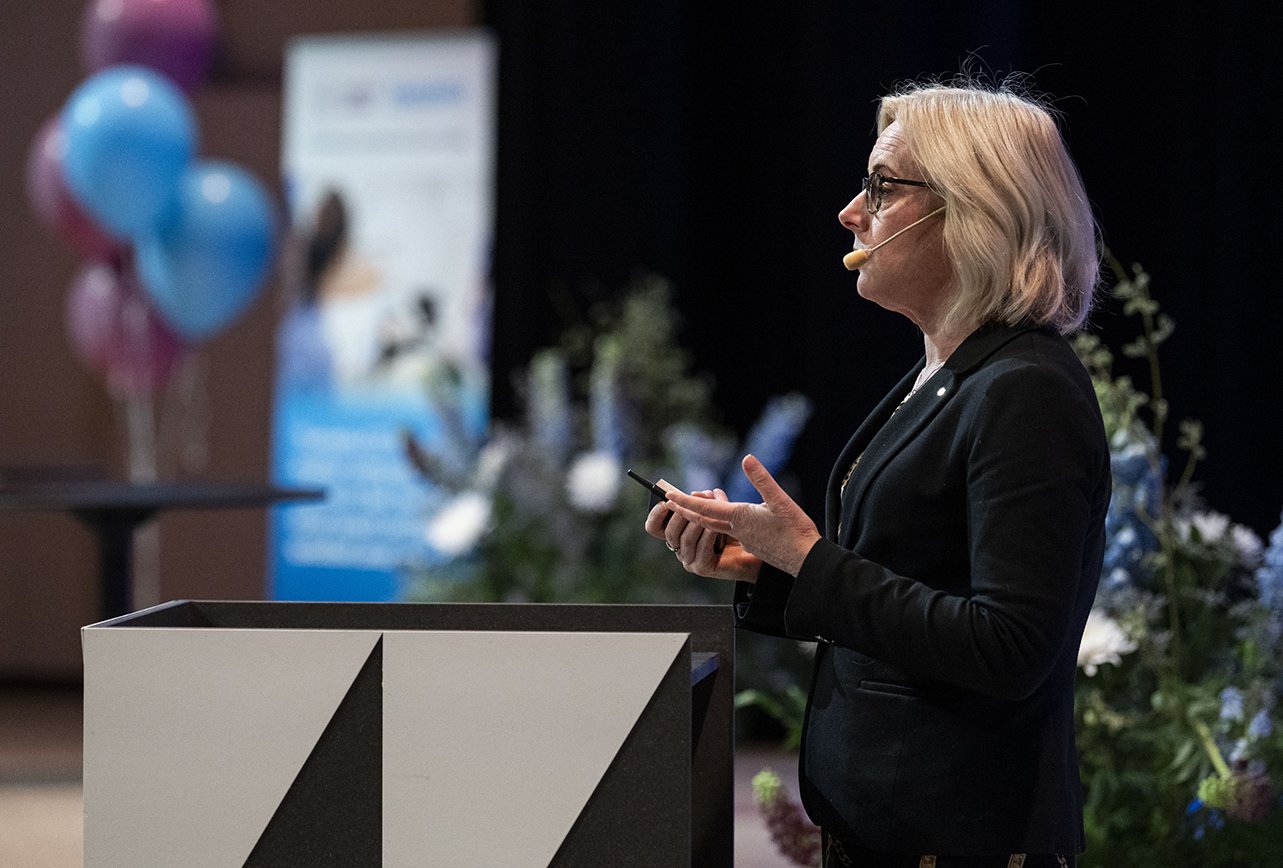
“It takes complex processes to reach that point, but things will quickly improve, partly thanks to developments in computer science. I think we’ll be seeing many more methods of activating the immune defence against cancer.”
